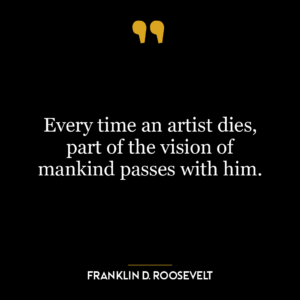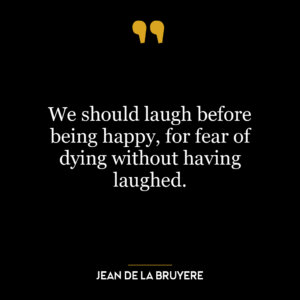This quote encapsulates the essence of mindfulness and living in the moment. It suggests that true happiness lies not in worrying about what the future might hold, but in fully immersing ourselves in the present moment and enjoying it. The ‘anxious dependence upon the future’ refers to the common human tendency to pin our happiness on future events or circumstances. For instance, we often think we’ll be happy when we get a promotion, when we buy a new house, or when we retire. But this quote suggests that such an approach only leads to anxiety and prevents us from finding happiness in the here and now.
In the context of today’s fast-paced, goal-oriented world, this quote is particularly relevant. We are often so focused on achieving our goals and planning for the future that we forget to enjoy the present. This can lead to stress, anxiety, and ultimately, unhappiness. By focusing on the present and appreciating what we have right now, we can find true happiness.
In terms of personal development, this quote encourages us to cultivate mindfulness and gratitude. Mindfulness involves paying attention to the present moment without judgement, while gratitude involves appreciating what we have right now. By practicing these skills, we can reduce our anxieties about the future and find joy in the present. This doesn’t mean we should abandon our goals or stop planning for the future, but rather that we should balance our future-oriented thinking with a healthy appreciation for the present.











